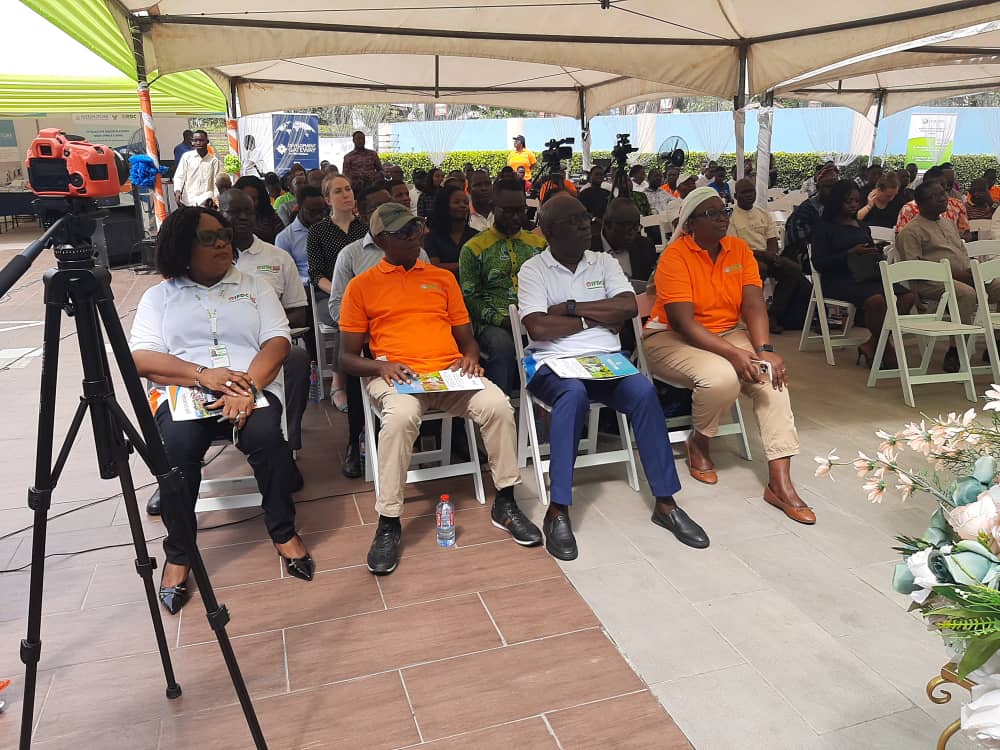
In recent years, the narrative surrounding corruption in Ghana has shifted from isolated scandals to a systemic malaise with broad-ranging implications for governance, economic growth and social trust.
The problem is not merely that corrupt acts continue to occur; rather, it is that they have become so entrenched, so interwoven into the fabric of public life and commerce, that they threaten the very foundations of progress.
As this reflection shows, the scale of the challenge facing Ghana demands more than denunciation—it requires an unflinching recognition of where we are, how we got here, and what must change if the country is to break the cycle.
The state of the nation: numbers that belie the promise
On the global stage, Ghana’s standing has recently taken a worrisome turn. According to the Transparency International Corruption Perceptions Index (CPI) 2024, Ghana scored 42 out of 100, ranking 80th out of 180 countries. This marks a drop from a score of 43 in 2023 and signals the worst performance in five years.
In ordinary terms, this means Ghana is slipping—not standing firm—in the battle against corruption.
From the perspective of everyday life, the figures are even more sobering. A survey by the Afrobarometer found that three-quarters of Ghanaians (74 %) believe that corruption increased over the previous year, with 63 % saying it rose “a lot”.
Three core institutions—police officials (63 %), the Presidency (54 %) and tax officials (53 %)—were seen by many as heavily tainted by graft. Even more telling, only one in four citizens believe they can report a corrupt act without fear of retaliation.
What this data speaks to is not just isolated wrongdoing, but a pervasive feeling of helplessness and a collapse of trust.
And the monetary losses are hardly trivial. According to a report by the United Nations Office on Drugs and Crime (UNODC) in Ghana, approximately one quarter (26.7 %) of adults who dealt with public officials in 2021 paid a bribe or refused to pay one; the average bribe was GH¢82, while the estimated total of such bribes was GH¢1.4 billion—roughly 0.8 % of GDP.
Furthermore, in the Auditor-General’s reports, six types of financial irregularities—cash, payroll, procurement, tax, stores and contract anomalies—amounted to GH¢12.8 billion in one review, and GH¢15.1 billion in the following year.
These numbers are not abstract—they represent resources that could have built hospitals, schools, roads, or supported business growth. Instead they lie in the shadows of misconduct and lax oversight.
Why the rot runs so deep
A number of factors help explain why corruption has become so endemic across board—from public-service interactions to major infrastructure contracts, from mining and the environment to the core functions of the state.
Weak accountability systems
Ghana’s legal and institutional architecture for fighting graft, though present in form, is weak in execution. The recent stagnation in CPI scores reflects the fact that despite repeated reforms, the underlying mechanisms lack teeth.
When oversight agencies are under-resourced, or when whistle-blowers face retribution rather than protection, corruption finds fertile soil. Indeed, only 3 % of those who paid bribes reported them to the authorities in the 2021 UNODC survey.
A system that rewards silence, delays investigations and renders little consequence fosters impunity.
Normalisation of bribes and favouritism
When a significant portion of interactions with public officials requires a bribe or is approached with expectation of favour, the act of giving or receiving becomes part of the ‘business as usual’. The UNODC data showed men were 1.6 times more likely than women to pay or be asked for a bribe in contact with officials.
This normalisation deepens the cultural embedment of corruption.
The overlap of political, business and private interests
In Ghana, public-private relationships often blur ethics. Whether it is in procurement, ghost names on payrolls or tax exemptions for insiders, lines of accountability are blurred. Recent revelations of suspected ghost names on the payroll at the National Service Authority—over 81 000 of them—underline the ease with which public funds can be diverted.
Such practices erode investor confidence, undercut fair competition and encourage rent-seeking behaviour across sectors.
The cost of illegal economy and environmental damage
Corruption isn’t confined to the public service alone. The informal economy—especially illegal mining (galamsey), smuggling and tax evasion—has been fuelled by weak regulation, porous borders and collusion. A report found Ghana lost an estimated US$11.4 billion over five years to gold smuggling alone, linked to undeclared exports and weak oversight.
These losses reflect not only stolen revenue but also degraded environment, damaged ecosystems and undermined future potential.
The consequences: growth compromised, trust eroded
When corruption becomes systemic and multifaceted, its impact transcends morality—it undermines economic performance, social cohesion and democratic legitimacy.
Stunted growth and lost opportunities
Every cedi diverted away from public investment or siphoned off through payroll irregularities, ghost names or inflated contracts is a cedi not creating value. A state that cannot efficiently deploy its resources will inevitably lag. International investors increasingly judge jurisdictions on governance and transparency; Ghana’s slipping CPI and public perceptions send a worrying signal.
As one social-media user put it:
“I feel like one of the biggest issues facing Ghana is the lack of transparency … this creates low-trust economies where corruption and uncertainty prevails.”
Simply put, corruption raises costs, increases risk and postpones progress.
Undermined trust in institutions
When citizens believe public officials, the legislature, the tax authority or the police are corrupt, the social contract frays. The Afrobarometer data show that many Ghanaians do not believe they can safely report corrupt acts.
Public-sector legitimacy begins with trust, and trust is eroded when transparency and accountability are absent.
Democratic and ethical erosion
Corruption may also degrade the rule of law and weaken democratic norms. As the country’s CPI score suggests, Ghana’s justice system is among the weak links.
Underlying it all is a moral dimension: when the powerful act with impunity, the example trickles down, and corruption becomes part of the fabric of how business and daily life are done.
Turning the tide: what needs to happen
Combatting corruption is not about symbolic gestures but about structural realignment: institutions, incentives, culture and enforcement.
Strengthen enforcement and oversight
The laws may exist, but enforcement must be relentless and visible. Ghana should consider specialised anti-corruption courts with speed, capacity and independence; establish concrete sanctions for asset-declaration non-compliance; and empower oversight agencies to act without political interference.
Without consequence, the deterrent effect is weak.
Harness transparency and citizen participation
Government data on contracts, budgets, procurement and public-service interactions should be easily accessible. Online portals, open-data initiatives and citizen-monitoring tools help shine light. For example, when payrolls are published and anomalies can be challenged, ghost names become harder to hide.
The only 3 % of bribe-payers who reported corrupt acts indicate a culture of resignation—by nurturing citizen-reporting and safeguard mechanisms we change that culture.
Align incentives within business and public sectors
Corruption thrives when incentives are mis-aligned. In the public sector, performance metrics should be tied to integrity; in the private sector, value-creation must outrank access-seeking. Contracts and procurement must reward efficiency, transparency and competitive bidding—not connections.
Moreover, whistle-blower protections should be robust, with safe channels and genuine protection against retaliation.
Promote a cultural shift
Long-term change requires more than laws—it needs a societal re-valuation of what is acceptable. Senior leadership—political, business and civil society—must model the highest standards. The cost of corruption is not simply financial; it is reputational, societal and generational.
Parents, schools, media and community groups must help inculcate the ethic that “doing the right thing” is non-negotiable.
A closing word
For Ghana to fulfil its promise—to harness its youthful population, its natural endowments and its strategic location—it must confront the corrosive drag of corruption head on. The data are stark: public perception is grim, the scale of theft and irregularity is vast, and the country’s global ranking is sliding.
But it is not too late.
What is required now is not another review or report, but accountability in action; institutional reform with teeth; transparency made real; and an unambiguous cultural recommitment to the idea that public service is a sacred trust, not a trough. The fortunes of the nation depend on it.
As those who write in the corridors of business and finance know: you cannot build on a shaky foundation. A future of growth, investment and shared prosperity demands a foundation of integrity. Ghana’s moment is now—to turn the tide, rebuild confidence and prove that the country can be, in the words of the headline, stronger than the grip of greed.

The post Reflections by S.M.A: When greed grips growth: Confronting corruption appeared first on The Business & Financial Times.
Read Full Story



















Facebook
Twitter
Pinterest
Instagram
Google+
YouTube
LinkedIn
RSS